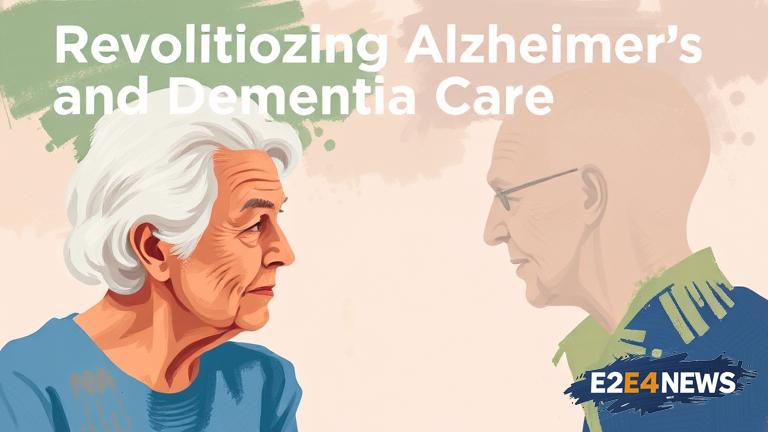The management of Alzheimer’s and dementia has undergone significant transformations in recent years, with primary care playing an increasingly vital role in the diagnosis, treatment, and care of patients. As the global prevalence of these conditions continues to rise, primary care providers are at the forefront of efforts to improve patient outcomes and enhance quality of life. One of the key emerging patterns in primary care is the adoption of a more holistic approach to patient care, taking into account the complex interplay between physical, emotional, and social factors that contribute to the development and progression of Alzheimer’s and dementia. This approach recognizes that patients with these conditions often have multiple comorbidities and require coordinated care from a multidisciplinary team of healthcare professionals. Primary care providers are also leveraging advances in technology, such as artificial intelligence and telemedicine, to improve diagnosis, monitoring, and treatment of Alzheimer’s and dementia. For example, AI-powered algorithms can help identify high-risk patients and predict disease progression, while telemedicine can facilitate remote consultations and reduce healthcare disparities. Furthermore, primary care providers are placing greater emphasis on preventive care, encouraging patients to adopt healthy lifestyle habits, such as regular exercise, balanced diet, and stress management, which can help reduce the risk of developing Alzheimer’s and dementia. Additionally, primary care providers are working to address the social determinants of health, such as social isolation, poverty, and lack of access to education and healthcare, which can exacerbate the symptoms of these conditions. The importance of early diagnosis and intervention cannot be overstated, as timely treatment can significantly slow disease progression and improve patient outcomes. Primary care providers are using a range of diagnostic tools, including cognitive assessments, laboratory tests, and imaging studies, to identify patients with Alzheimer’s and dementia. Once diagnosed, patients can benefit from a range of treatments, including medications, such as cholinesterase inhibitors and memantine, which can help manage symptoms and slow disease progression. Non-pharmacological interventions, such as cognitive training, behavioral therapy, and caregiver support, are also essential components of comprehensive care. Moreover, primary care providers are recognizing the critical role that caregivers play in the care of patients with Alzheimer’s and dementia, providing them with education, support, and resources to help manage the physical, emotional, and financial burdens of caregiving. As the population ages and the prevalence of Alzheimer’s and dementia continues to rise, primary care providers will play an increasingly vital role in the management of these conditions. By adopting a holistic, patient-centered approach to care, leveraging advances in technology, and addressing the social determinants of health, primary care providers can help improve patient outcomes, enhance quality of life, and reduce healthcare disparities. The future of Alzheimer’s and dementia care is likely to be shaped by ongoing research and innovation, including the development of new treatments, such as disease-modifying therapies, and the use of emerging technologies, such as wearable devices and mobile health applications. As our understanding of these conditions continues to evolve, primary care providers will be at the forefront of efforts to translate new knowledge into practice, improving the lives of patients with Alzheimer’s and dementia and their caregivers. The importance of collaboration and coordination between primary care providers, specialists, and community-based services cannot be overstated, as patients with Alzheimer’s and dementia often require complex, multidisciplinary care. By working together, healthcare professionals can ensure that patients receive comprehensive, high-quality care that addresses their unique needs and promotes optimal outcomes. Ultimately, the management of Alzheimer’s and dementia requires a sustained commitment to innovation, collaboration, and patient-centered care, recognizing that every patient deserves access to high-quality, compassionate care that respects their dignity and promotes their well-being.
